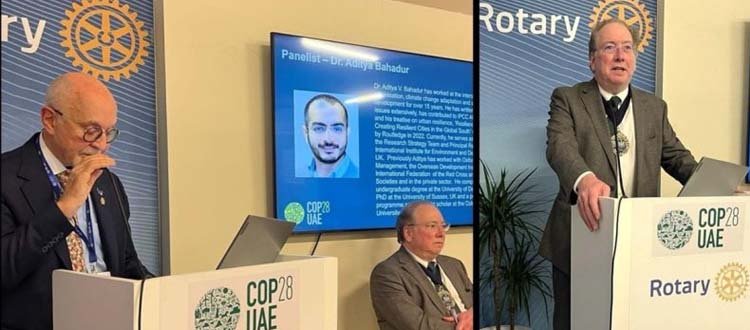Financing the necessary steps to tackle climate change challenges is one of the most pressing issues of our time.

At the recent COP28, I had the pleasure of moderating a panel discussion on this critical topic with a group of exceptional thought leaders and visionaries. Michael Mainelli, Lord Mayor of London, highlighted the critical role of the private sector in addressing climate challenges. We explored the mounting interest in impact investing and the imperative to scale up sustainable financial markets, despite the complexities involved. We examined a range of pioneering financial tools, such as feed-in tariffs, diverse tax incentives, and renewable portfolio standards, which are vital in this endeavour. Avinash Persaud, Emeritus Professor at Gresham College, reviewed the role of the UNFCCC Loss and Damage Fund, which was finalised on the first day of COP28. This fund is designed to provide financial assistance to less affluent nations that are battling the severe repercussions of climate change, including phenomena such as rising sea levels and extreme weather events. Dr Aditya V. Bahadur, Chair of the Research at International Institute for Environment and Development, brought into focus the specific challenges of financing climate change measures in urban settings. We examined some of the possible funding solutions such as the Green Climate Fund and the Global Environment Facility, which provides grants and concessional funds. The session also included a critical examination of the voluntary carbon market, where we weighed its strengths and potential pitfalls, discussing aspects such as carbon trading, cap-and-trade systems, and offset projects. This enriching discussion was hosted in the Rotary Pavilion at COP28 and organised by Judith Diment MBE, Dean, Rotary Representatives Network to the UN and International Agencies.
View Article Source